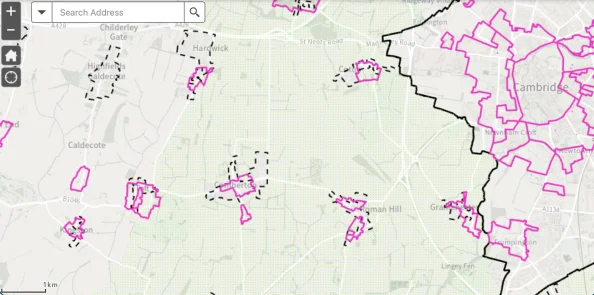Planning compliance refers to development work that should have had planning permission, or where the permission has not been complied with. It ensures fairness, stops unacceptable or unauthorised developments, and gives communities confidence in the system.
Our online form is the only way to report a breach. Reports sent by email will not be responded to.
A breach can be reported to our planning compliance team to investigate. They will then look at the problem and decide on what action should be taken.
We always aim to resolve planning compliance through negotiation and discussion before resorting to formal action.
Check if permission has been granted
You can check if permission has been granted by searching on Public Access.
For an overview of breaches of planning control, you can watch our vide below:
How to report a breach of planning control
Please use our online form linked at the top of the page to report a breach of planning control. Please make sure you include:
- the nature of the breach
- the location
- your name, address, and contact details
- photos of the development or other documents
Your personal details are confidential and will only be accessible to the Compliance Team. Find out more by reading our privacy notice.
Next steps
Your case will be assigned to a member of the team. You will receive an email with the case reference number, the case officer name and email address.
Formal enforcement action is discretionary and is pursued when the breach of planning control is causing harm, or conflicts with development plan policies. Just as with a planning application, each enforcement investigation must be looked at on an individual basis.
We may decide to hold off on formal enforcement action whilst the person makes a retrospective application (an application for something that has happened in the past) for planning permission or consent. This application will follow our standard decision process.
What you can report as a breach
- building work or alterations that have been carried out without planning permission, and are not permitted development (these are developments that are exempt from planning permission)
- building work has planning permission but it is different from the approved plans
- failure to comply with the conditions that were attached to a planning permission
- work or demolition has occurred to a listed building or a building in a conservation area without permission
- unauthorised work to a tree, or trees, protected by a Tree Preservation Order (TPO)
- work to a tree or trees in a conservation area, or work to any rural agricultural hedgerow, has been carried out
- the significant raising or lowering of ground levels or land, or the formation of earth bunds
- the use of land or a building has changed without permission
- unauthorised display of an advertisement or sign
- the land or building is in poor condition and is impacting on the visual appearance of the wider area
- short term visitor accommodation - there is possibly a need for planning permission because the residential use of the property has changed
- development has occurred which is not permitted because an Article 4 Direction has been made
What you cannot report
- building work or extensions that don’t require planning permission – this is known as permitted development
- changes in the use of land or buildings which are not so significant that they comprise a material change of use
- the display of advertisements which do not require consent - read the regulations relating to advertisements to find out what is permitted
- where operational development has been carried out more than 4 years ago it is immune from enforcement action
- where a residential use of a building has taken place for more than 4 years it is immune from enforcement action
- where any other change of use has existed for more than 10 years it is immune from enforcement action
- issues relating to waste disposal please visit our Greater Cambridge Shared Waste website
- issues relating to the adopted highway (including advertisements displayed within the Highway or on street furniture, or illegally parked cars) – these are dealt with by Cambridgeshire County Council
- if buildings or extensions have been constructed inadequately or there are concerns regarding potentially dangerous structures, you should contact our Building control department.
- problems relating to covenants or other legal restrictions on a specific piece of land or building – these are civil and/or legal matters
- boundary, or land ownership disputes
- work to trees that are not covered by a tree protection order or are not in a conservation area
- suspected future breaches (things you believe might happen)
- trade or competition complaints.

